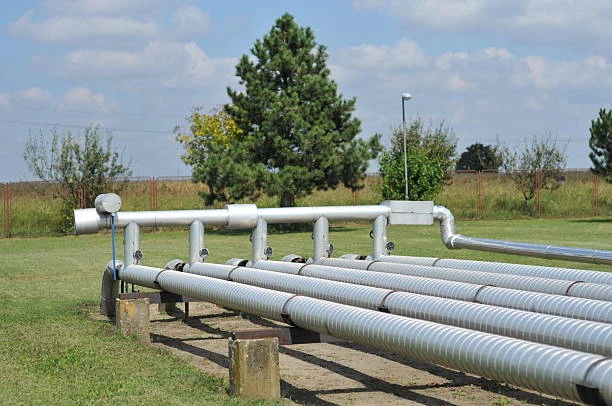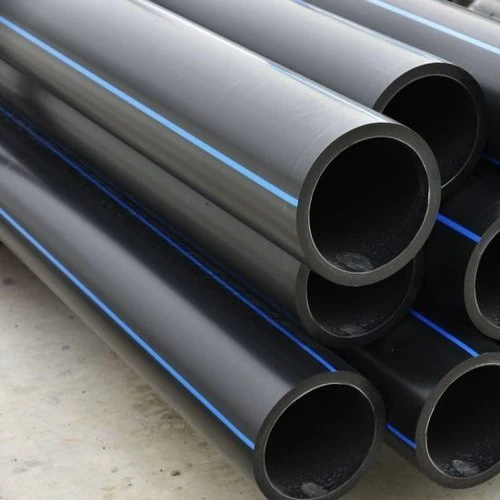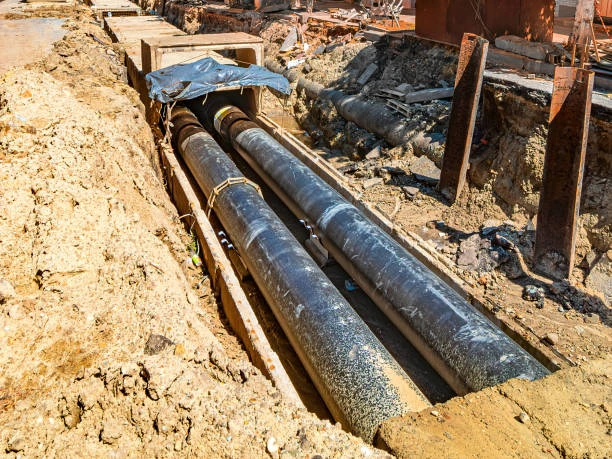In a significant development for the construction and infrastructure sector in Saudi Arabia, Sappco (Saudi Arabian Plastic Pipes Company) has successfully secured a major contract for the supply of high-density polyethylene HDPE pipe. This contract not only underscores Sappco’s reputation as a leader in the plastic pipe industry but also highlights the increasing demand for durable and efficient piping solutions in the region.

Understanding HDPE Pipe
High-density polyethylene (HDPE) pipes are widely used across various sectors due to their unique characteristics and benefits. Made from high-density polyethylene, these pipes are known for their strength, flexibility, and resistance to corrosion and chemical degradation. As a result, HDPE pipes have become a preferred choice for many applications, including water supply, sewage, and industrial uses.
Key Characteristics of HDPE Pipe
- Durability: HDPE pipes are designed to withstand harsh environmental conditions, making them suitable for long-term applications. They resist impact, UV radiation, and chemicals, ensuring a long service life.
- Corrosion Resistance: Unlike metal pipes, HDPE pipes do not corrode, which helps maintain the quality of the fluids they transport. This is particularly important in water supply systems where contamination can pose significant health risks.
- Lightweight and Flexible: The lightweight nature of HDPE pipes makes them easier to transport and install. Their flexibility allows for various installation techniques, reducing the need for extensive excavation.
- Low Friction Loss: The smooth interior surface of HDPE pipes minimizes friction loss, resulting in enhanced flow rates and reduced energy costs for pumping systems.
The Significance of Sappco’s Contract
The recent contract secured by Sappco for supplying HDPE pipes in Saudi Arabia marks a milestone in the company’s growth trajectory. This contract is particularly noteworthy for several reasons:
1. Meeting Growing Demand
Saudi Arabia’s rapid urbanization and infrastructure development are driving a growing demand for reliable and efficient piping solutions. Sappco’s contract positions the company to meet this demand, ensuring the availability of high-quality HDPE pipes for critical projects.
2. Supporting National Development Goals
The supply of HDPE pipes aligns with Saudi Arabia’s Vision 2030, which aims to diversify the economy and improve infrastructure. By providing durable and efficient piping solutions, Sappco is contributing to the country’s efforts to enhance water management, sewage systems, and industrial applications.
3. Enhancing Environmental Sustainability
The use of HDPE pipes supports sustainable development goals by minimizing environmental impact. These pipes are recyclable, reducing the amount of plastic waste generated. Additionally, their resistance to corrosion and leaks helps protect water quality and surrounding ecosystems.
Applications of HDPE Pipe
HDPE pipes are versatile and can be used in various applications, including:
1. Water Supply Systems
HDPE pipes are extensively used in municipal water supply systems due to their ability to resist corrosion and maintain water quality. Their durability ensures a reliable supply of clean drinking water.
2. Waste Water Management
In sewage and waste water systems, HDPE pipes play a critical role in transporting waste safely and efficiently. Their resistance to chemicals makes them ideal for handling a variety of waste materials.
3. Industrial Applications
Industries such as mining, agriculture, and oil and gas rely on HDPE pipes for transporting fluids and materials. Their strength and flexibility make them suitable for demanding environments.
4. Irrigation Systems
In agriculture, HDPE pipes are used for irrigation systems, ensuring efficient water distribution. Their lightweight nature allows for easy installation and maintenance in the field.
The Manufacturing Process of HDPE Pipe
Understanding the manufacturing process of HDPE pipes sheds light on their quality and performance. The production involves several key steps:
1. Raw Material Selection
High-quality polyethylene resin is selecte as the primary raw material for manufacturing HDPE pipes. The choice of resin affects the pipes’ strength, flexibility, and resistance to environmental factors.
2. Extrusion
The selected resin is melte and forme into a continuous pipe shape through the extrusion process. This step ensures uniform thickness and quality across the entire length of the pipe.
3. Cooling and Cutting
After extrusion, the newly formed HDPE pipe is coole to solidify its shape. The pipes are then cut to specifie lengths, ready for packaging and distribution.
4. Quality Control
Quality control measures are implemente at various stages of production to ensure that the pipes meet industry standards. Tests for strength, flexibility, and resistance to chemicals are conducted to guarantee reliability.
The Future of HDPE Pipe in Saudi Arabia
The demand for HDPE pipes in Saudi Arabia is expecte to grow significantly in the coming years. Several factors contribute to this positive outlook:
1. HDPE pipe Infrastructure Development
As the Saudi government continues to invest in infrastructure projects, the need for high-quality piping solutions will increase. Sappco’s recent contract positions the company to play a vital role in these developments.
2.HDPE pipe Technological Advancements
Advancements in manufacturing processes and materials are expecte to enhance the performance of HDPE pipes further. Innovations in pipe design and installation techniques will improve efficiency and reduce costs.
3. HDPE pipe Environmental Regulations
With growing awareness of environmental issues, stricter regulations on waste management and water quality are likely to drive demand for HDPE pipes. Their durability and recyclability make them an attractive choice for environmentally-conscious projects.
Conclusion
Sappco’s acquisition of a major contract for supplying HDPE pipes in Saudi Arabia marks a significant achievement for the company and the industry as a whole. The advantages of HDPE pipes—such as durability, corrosion resistance, and environmental sustainability—position them as a leading choice for infrastructure projects across the region. As demand continues to rise, Sappco’s commitment to quality and innovation will ensure they remain a key player in the market, contributing to the development and sustainability of Saudi Arabia’s infrastructure.
FAQs
- What are HDPE pipes use for?
- HDPE pipes are use in various applications, including water supply systems, waste water management, industrial applications, and irrigation systems.
- Why are HDPE pipes preferre over traditional materials?
- HDPE pipes are preferre due to their durability, corrosion resistance, lightweight nature, and low friction loss, which enhance efficiency and reduce costs.
- How are HDPE pipes manufacture?
- HDPE pipes are manufacture through a process that involves selecting high-quality resin, extrusion, cooling, cutting, and rigorous quality control testing.
- What are the environmental benefits of HDPE pipes?
- HDPE pipes are recyclable and reduce plastic waste. Their durability and resistance to leaks also help protect water quality and surrounding ecosystems.
- What does Sappco’s contract signify for the future of piping solutions in Saudi Arabia?
- Sappco’s contract indicates a growing demand for reliable piping solutions in Saudi Arabia, supporting national development goals and environmental sustainability initiatives.

















